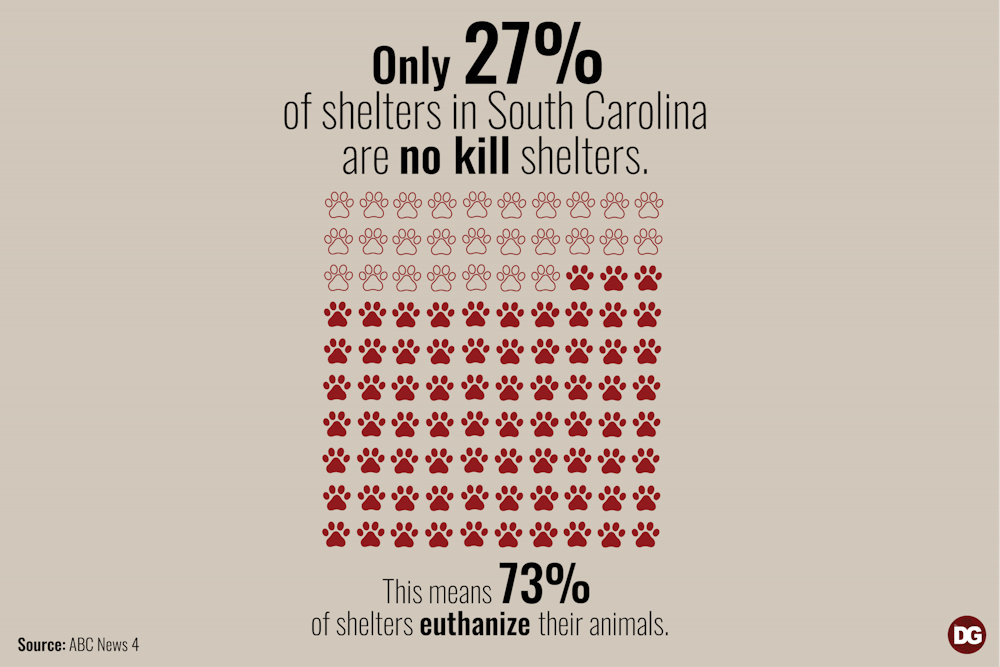Adopting or fostering animals from shelters and being a responsible pet owner is not only crucial for animals in need, but it also benefits the environment by protecting native species.
According to the American Society for the Prevention of Cruelty to Animals, 6.3 million companion animals, such as cats and dogs, enter animal shelters every year. Overcrowding and pet surrender is a major issue in animal shelters, leading to over 900,000 shelter animals being euthanized annually.
“The truth is that you'll never adopt your way out of animal overcrowding situations,” Jennifer Coody, the executive director of Animal Mission, said.
Adoption is just one aspect of responsible pet ownership. Sourcing an animal from a shelter ensures that the pet is kept off the street and given a safe home.
Even if you cannot commit to a full adoption, fostering an animal is just as valuable, as it gives them a loving place to live until they can find their forever home.
There are several adoptions and fostering options just within the Columbia area. Pawmetto Lifeline and Homeward Bound Pet Rescue are local adoptions and foster service providers.
"There are so many neglected, and ill-treated and homeless pets out there that we need to look to adoption to help combat that,” Charlene Cassidy, a volunteer with Homeward Bound Pet Rescue, said. “But that's really not the only solution. We need strong spay-neuter programs here to help prevent unwanted and accidental litters of puppies and kittens.”

Animal Mission provides spay and neuter services for animals and vouchers to lower the cost of the procedure for pet owners. Its mission is to help Midlands shelters achieve 'No Kill' status.
These shelter animals come from a number of backgrounds. Some were abandoned by their owners because they were not spayed or neutered, some were born in the wild and others could not be taken to their owners' new homes.
For companion animals accustomed to more sheltered existence, being out in the wild can be dangerous.
“I think folks think that cats can handle themselves on their own out in the wild," Cassidy said. "That's not necessarily true. That's a dangerous place for them to live. It's a dangerous place for dogs to live, too."
This overpopulation of animals, particularly cats, can be lowered by spaying and neutering them, especially if they venture outdoors often.
Spaying and neutering ensure that animals do not continue the cycle of producing large litters of animals with nowhere to go.
Taking proper care of animals, getting the necessary precautions and avoiding overpopulation in shelters would also help the local environment.
Cats are predators, meaning they hunt for their food. Because of this, they can cause harm to the native bird population and spread diseases as well. One of those diseases is Toxoplasmosis, which can spread from cat to cat, and eventually humans, via parasites.
According to the American Bird Conservatory, cats have contributed to the extinction of 63 species of birds, mammals and reptiles in the wild.
Supporting animal shelters is crucial in preserving the lives and health of our animals and environment. By practicing methods of responsible pet ownership, the issues of euthanasia and overpopulation in animal shelters can be rectified. Any pet lover should turn their support into action by volunteering and spreading awareness.

